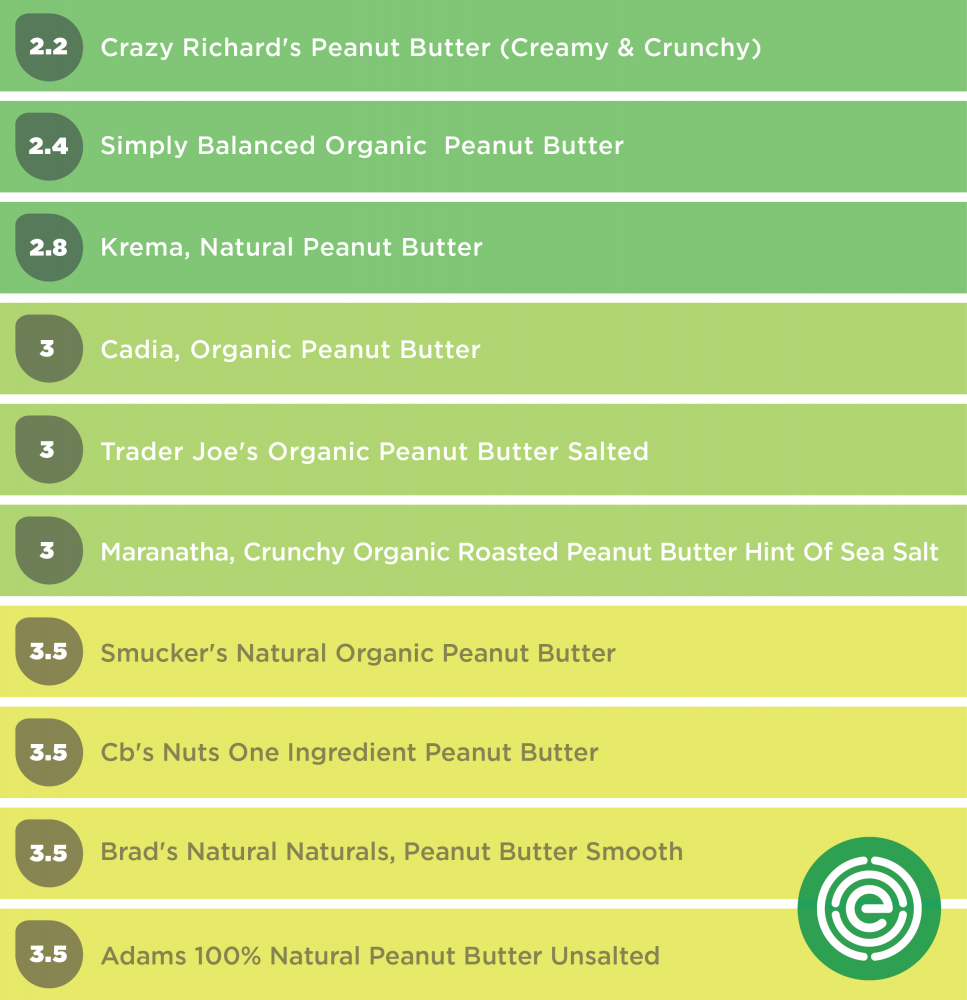
Creamy or crunchy? In a sandwich with grape jelly or strawberry jam? On crackers or celery sticks? No matter how you spread it, peanut butter is a staple of the American diet. But what's in it?
Old-school peanut butter was made from one simple ingredient: ground roasted peanuts. But nowadays, if you pick up a jar from a supermarket shelf, odds are that it contains much more. Today many commercial brands have added sugars, salt, hydrogenated oils and other preservatives.
Many peanut butter manufacturers have long added a pinch of salt for flavor, and peanuts naturally contain small amounts of sugars. But today’s processed brands often contain copious amounts of both added sugars and added salt.
Reduced-fat peanut butters are some of the worst offenders. Manufacturers often take out healthy monosaturated fats, then add much more sugar and salt to boost the flavor. The average American already gets too much salt and sugar, so eating more in peanut butter is something you should definitely try to avoid.
Hydrogenated oils, as well as preservatives like potassium sorbate, are added to extend peanut butter’s shelf life. Of special concern are hydrogenated oils, present in over 80 percent of peanut butter brands. These oils are chemically altered by adding extra hydrogen atoms to make the oil molecules more solid and stable. Peanut butters with stable hydrogenated oils last longer. But hydrogenated oils also introduce artery-clogging saturated and trans fats to peanut butter's otherwise-healthy fat profile.
Trans fats are some of the worst ingredients commonly found in food. These man-made fats increase your bad cholesterol (low-density lipoprotein, or LDL) while decreasing your good cholesterol (high-density lipoprotein, or HDL). Ultimately, trans fat intake increases your risk of heart disease, obesity and diabetes.
Though not as bad for your health as partially hydrogenated oils, fully hydrogenated oils are still a source of saturated fats and a minor source of trans fats. Most research shows that in general, the higher your saturated fat intake, the greater your risk of developing coronary heart disease. For a healthy heart, the American Heart Association recommends avoiding foods with hydrogenated oils, including peanut butter.
If you are looking for a healthy peanut butter made with just peanuts and maybe a pinch of salt, sifting through the many brands with unnecessary added ingredients can be frustrating. That’s where EWG can help. Check out this list with our top 10 peanut butters.
Also, use EWG’s Food Scores and download our app on Google Play and the App Store to find the best peanut butters out there.




